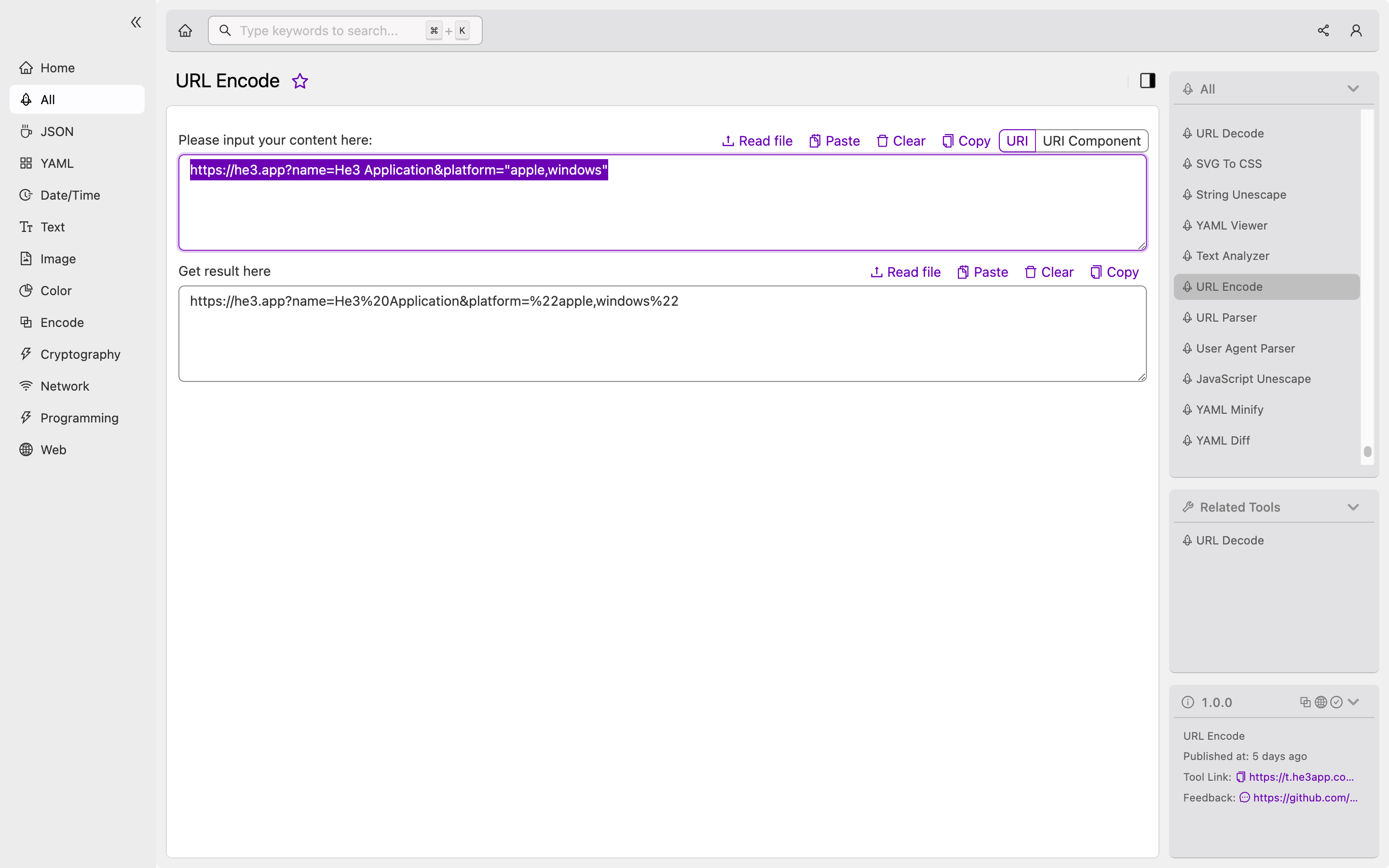Introduction
URL Encode is one of the many encoding techniques used in web development. As a developer, it is essential to understand how it works and how it can be used to encode special characters in URLs. In this article, we will delve into the basics of URL Encode, explain how it works and how it is used in various scenarios.
What is URL Encode?
URL Encode is a process of encoding special characters in a URL to make it readable by web browsers. The process involves converting special characters into a format that can be safely transmitted over the internet. The encoded characters are replaced by a percentage sign (%) followed by two hexadecimal digits that represent the ASCII code of the character.
How does URL Encode work?
URL Encode works by converting special characters in a URL to a format that can be safely transmitted over the internet. For example, if a URL contains a special character, such as a space or an ampersand, it is first converted into its corresponding ASCII code, and then it is represented in hexadecimal format. The hexadecimal format is then preceded by a percentage sign (%), and the final encoded URL is sent to the server.
Sample code
URL Encode is a simple process that can be easily implemented in various programming languages. Here’s a sample code in Python:
import urllib.parse
url = "https://www.example.com/search?q=URL Encode"
encoded_url = urllib.parse.quote(url)
print(encoded_url)Scenarios and applications
URL Encode is used in various scenarios in web development. Some of the most common applications of URL Encode include:
- Query strings: URL Encode is used to encode special characters in query strings, such as spaces, ampersands, and equal signs.
- Form data: URL Encode is used to encode form data before it is submitted to a server.
- Cookies: URL Encode is used to encode special characters in cookies, such as equals signs or whitespace.
Key features
Here are some key features of URL Encode:
| Features | Description |
|---|---|
| Character encoding | URL Encode uses character encoding to convert special characters into a format that can be transmitted over the internet. |
| ASCII codes | URL Encode represents special characters as their corresponding ASCII codes. |
| Hexadecimal format | URL Encode represents ASCII codes of special characters in hexadecimal format. |
Misconceptions and FAQs
Misconception 1: URL Encode is only used for URLs
URL Encode is not limited to encoding only URLs. It can be used to encode special characters in any string, such as form data or cookies.
Misconception 2: URL Encode is a security feature
URL Encode is not a security feature. While it does make URLs and other strings safer to transmit over the internet, it does not offer any protection against security threats such as SQL injections or cross-site scripting attacks.
FAQ 1: What is the difference between URL Encode and URL Decode?
URL Encode is used to encode special characters in a URL, while URL Decode is used to decode the encoded characters back to their original form.
FAQ 2: Do I always need to use URL Encode?
URL Encode is recommended whenever a URL or any string contains special characters. It ensures that the characters are safely transmitted over the internet and prevent any issues during data transmission.
How to use URL Encode
URL Encode is a powerful tool that all developers should have in their toolbox. There are many online tools available that can help you encode URLs quickly and easily. Or you can use URL Encode tool in He3 Toolbox (https://t.he3app.com?t9q8 ) easily.

Conclusion
URL Encode is an essential technique that all web developers should be familiar with. By encoding special characters in URLs, developers can ensure that their URLs are safely transmitted over the internet. With the help of online tools and programming languages, implementing URL Encode has never been easier.
References:
